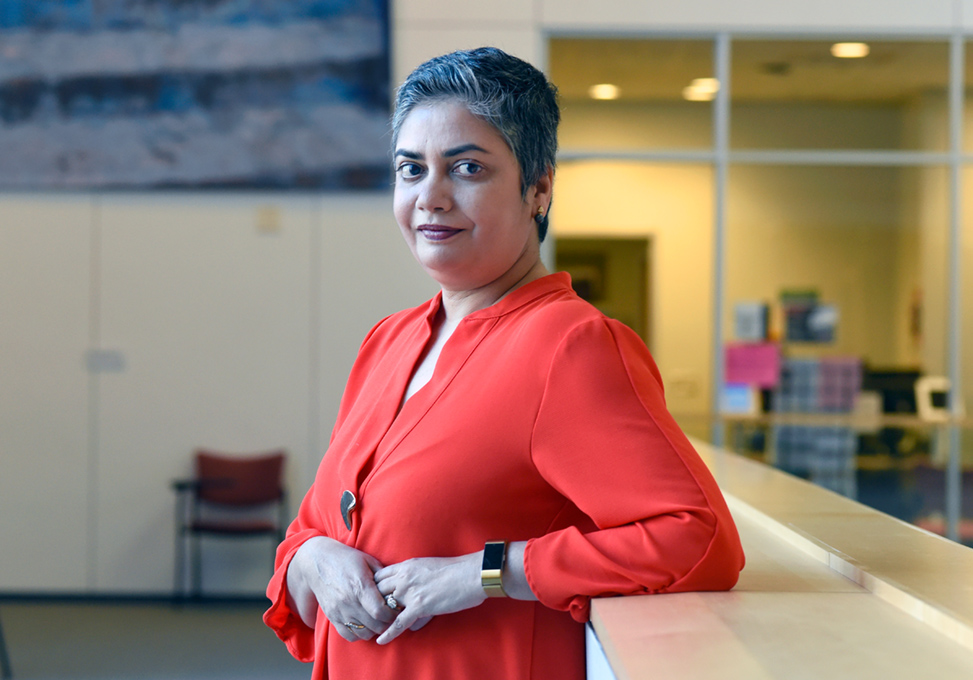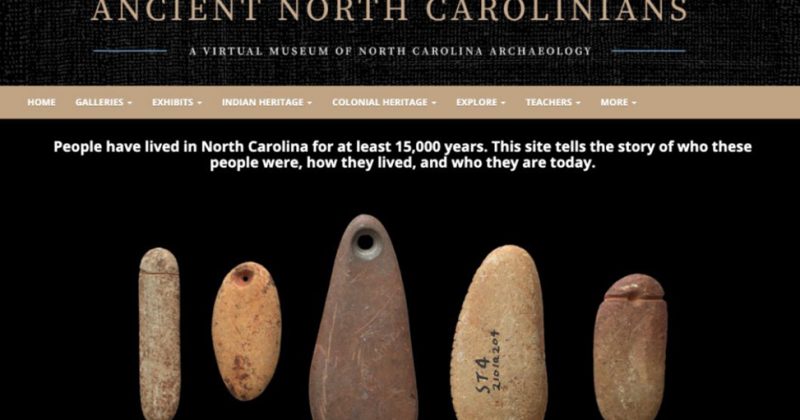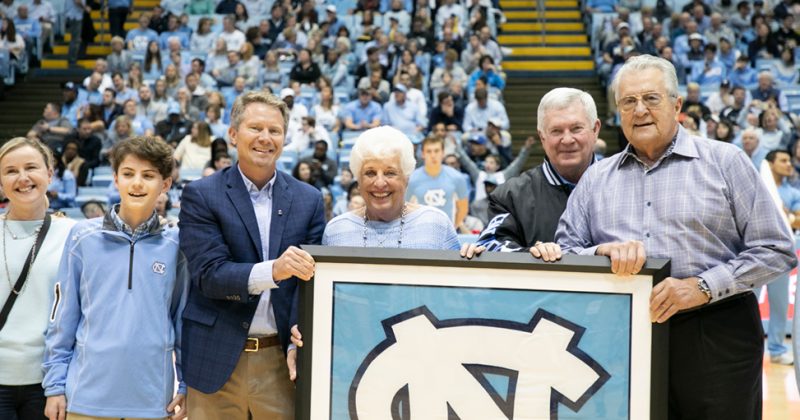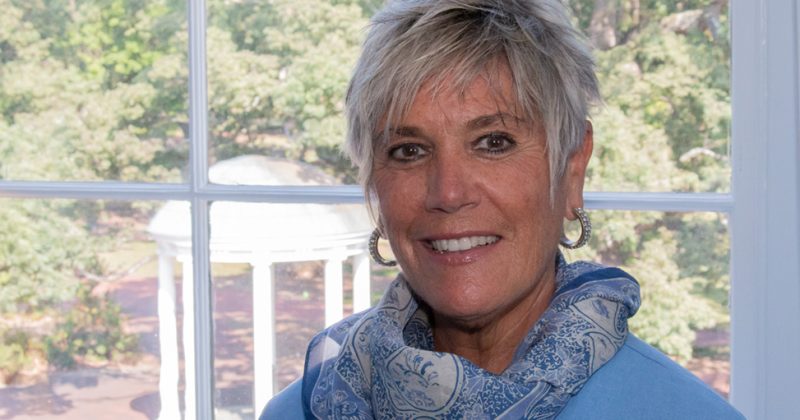
Anusha Chari leads the new Modern Indian Studies Initiative, which will focus on India’s role as an economic powerhouse and a leader in innovation and technology. (photo by Donn Young)
An international economist is the director of a new initiative that will advance knowledge and understanding of India’s emergence as an economic powerhouse.
Imagine this for your workday: fly from RDU to Newark, then board a plane to Mumbai, India. Attend a conference, give two presentations and then return to the airport. Fly back across the world to North Carolina. Ten–and-a-half time zones and 16,000 miles.
Welcome to a day in the life of global finance expert and UNC-Chapel Hill professor Anusha Chari.
Chari is regularly invited to speak at central banks around the world: Argentina, Chile, Mexico and Canada, to name a few.
“When you visit countries and talk to their government officials and policymakers, it enriches your understanding of what the issues really are,” Chari said. “It also expands your perspective. If I talk to officials at the Fed, I’ll get the U.S. point of view. But when I go to Korea or Hong Kong or India, I learn about the impact of U.S. policy on their countries.”
When she isn’t globetrotting, Chari teaches courses in the department of economics in the College of Arts & Sciences and at Kenan-Flagler Business School. She is also the inaugural director of the Modern Indian Studies Initiative.
Chari, who is originally from India, said her home country has long been an area of special interest at universities across the world. But traditional research institutes tend to focus on India’s rich cultural heritage, history, languages and religion.
The Modern Indian Studies Initiative focuses on the India of today. Because the Indian economy has been growing at a rate of 7% to 8% a year, many economic models show it will rank as the world’s third largest economy within the next 10 years. By 2050, it may well be the second-largest economy.
“There seems to be a lack of awareness that India has transformed into an economic powerhouse and emerged as a leader on the global stage in terms of innovation and technology,” Chari said.
To get a handle on how quickly India is growing and changing — and how those massive changes impact the rest of the world — we must examine its giant economy, its contributions to cutting-edge technology and its young population, Chari said.
Roughly a third of India’s population is under the age of 15, and nearly 150 million are college-age. Delivering essential services like education and health to all those young people presents an unprecedented challenge.
But great challenges create opportunities for innovative solutions. Chari hopes the Modern Indian Studies Initiative will generate some of those solutions.
From the School of Medicine, where researchers are developing low-cost fetal monitoring equipment, to infrastructure research in the department of city and regional planning, UNC is already home to dozens of research projects connected to India. To promote the wide range of expertise and share that knowledge, Chari and her team plan to facilitate grants and fellowships for graduate students, as well as faculty research grants focused on issues that India is facing. They also plan to create an online portal to highlight the multitude of ways UNC faculty, researchers and students are working with India.
As a researcher, Chari studies the effects of financial globalization, the flow of capital across countries and the financial systems of emerging markets. Her work involves large cross-country studies with massive data sets to understand the impact of policy changes.
While she loves the research and world travel, Chari said the most fulfilling part of her job is working with students.
“It’s especially important at UNC, where 82% of the undergraduate student body is from North Carolina,” she said. “Some of the students have had the privilege of traveling abroad but many have not. Teaching them about the international economy is so satisfying — I can see the changes in them in class when ideas connect and the lightbulb turns on.”
By Mary Lide Parker ’10
Published in the Spring 2020 issue | Tar Heels Up Close
Read More

A virtual museum of ancient N.C. history
Ancient North Carolinians is a new virtual museum that raises…

Transformational gift to fund new sports medicine complex
A transformational gift from Don and Billie Stallings of Rocky…


